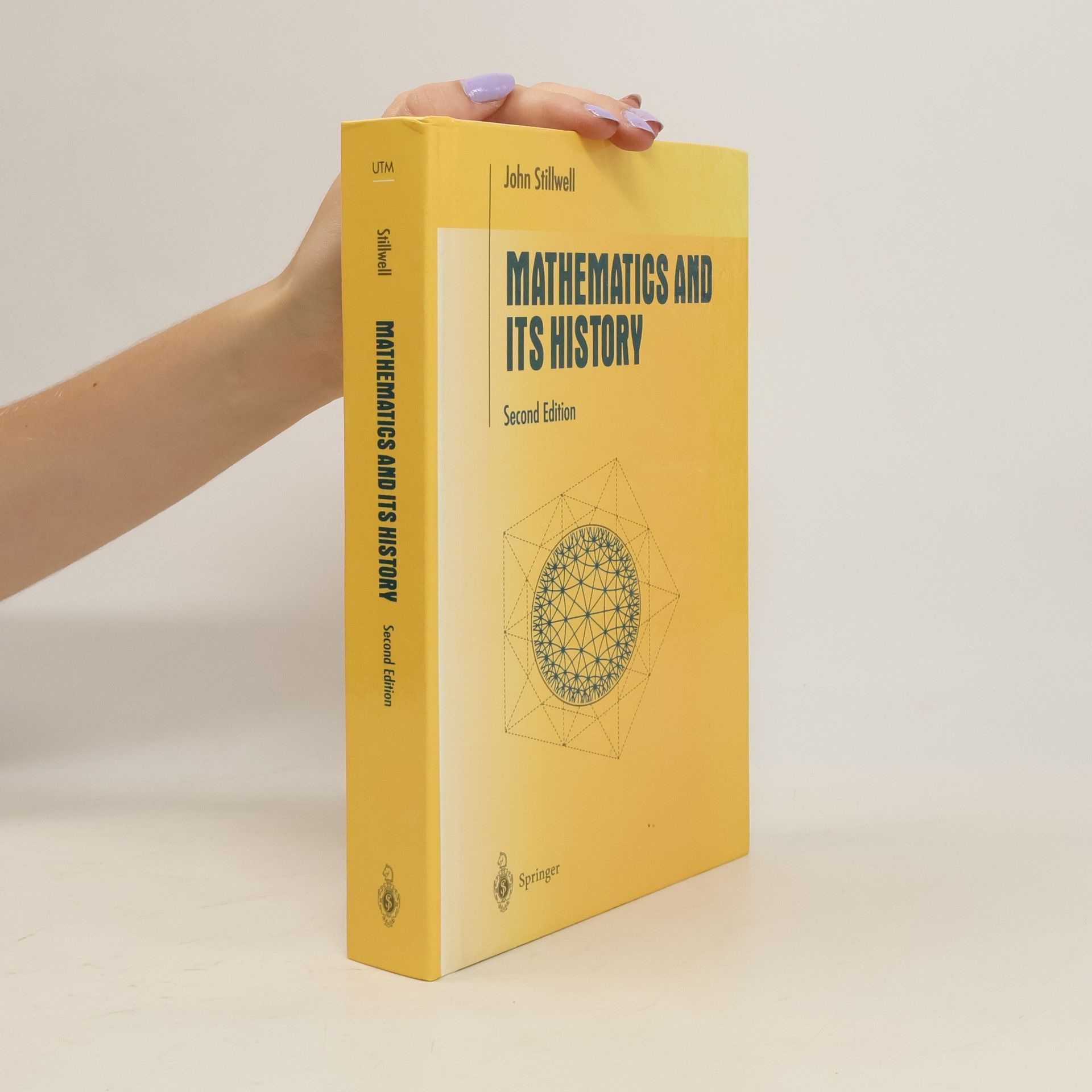This book offers a collection of historical essays detailing a large variety of mathematical disciplines and issues; it’s accessible to a broad audience. This second edition includes new chapters on Chinese and Indian number theory, on hypercomplex numbers, and on algebraic number theory. Many more exercises have been added as well as commentary that helps place the exercises in context.
John Stillwell Livres




Exploring the evolution of proof, this book highlights its crucial role in shaping mathematical knowledge from ancient to modern times. It traces the journey from Euclid's geometry to the development of algebra and calculus, illustrating how proof methods have transformed. The discussion extends to number theory, non-Euclidean geometry, and logic, revealing the profound implications of proof on arithmetic and the limitations it imposes on theorem validation. Through historical episodes, it provides a fresh perspective on mathematics' foundational principles and its capacity for innovation.
Exploring the intersection of set theory and mathematical logic, this book delves into their influence on contemporary mathematics, particularly in number theory and combinatorics. It examines how foundational questions about infinity and the nature of proof have shaped mathematical thought. By tracing the evolution of these ideas, the text provides a comprehensive understanding of their relevance in modern mathematical discussions and developments.
This book, meant for undergraduate mathematics students and teachers, introduces algebraic number theory through problems from ordinary number theory that can be solved with the help of algebraic numbers, using a suitable generalization of unique prime factorization. The material is motivated by weaving historical information throughout.